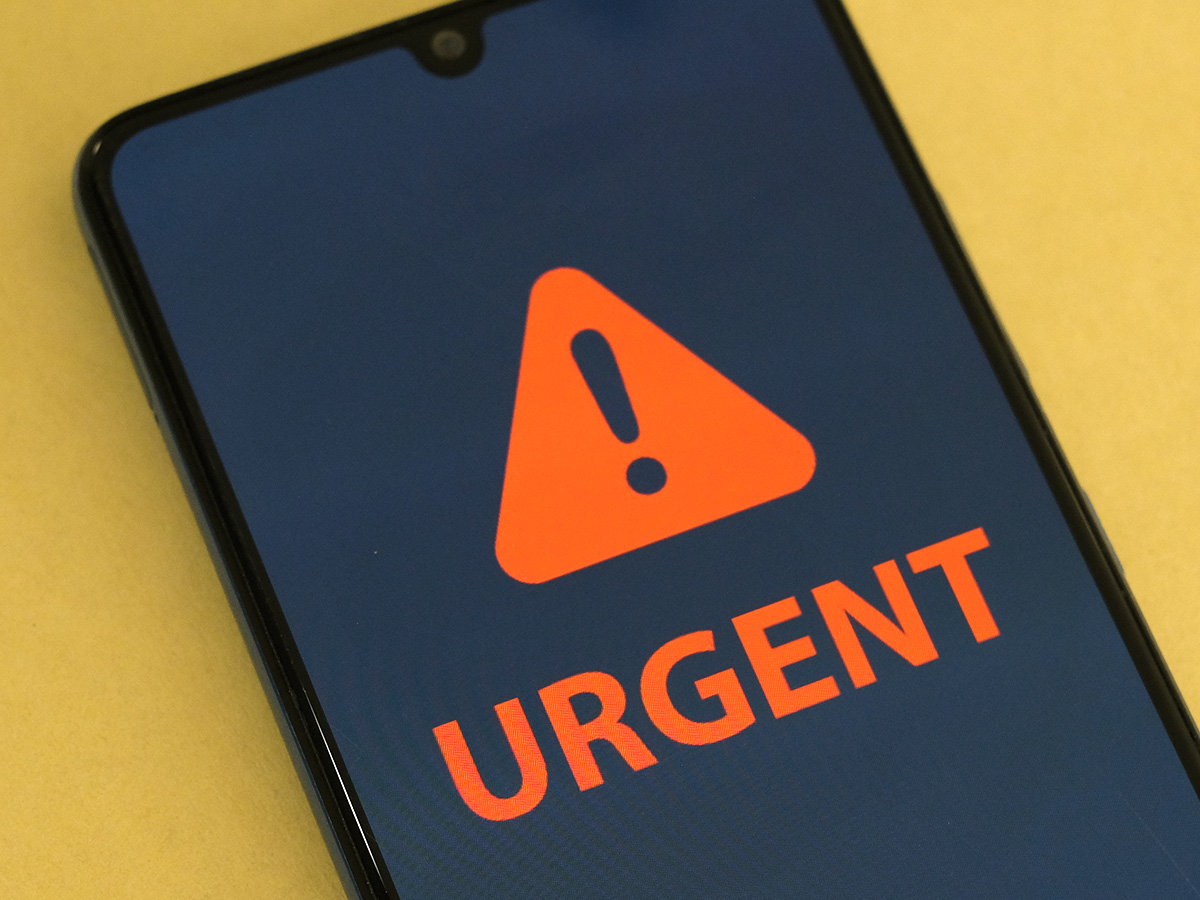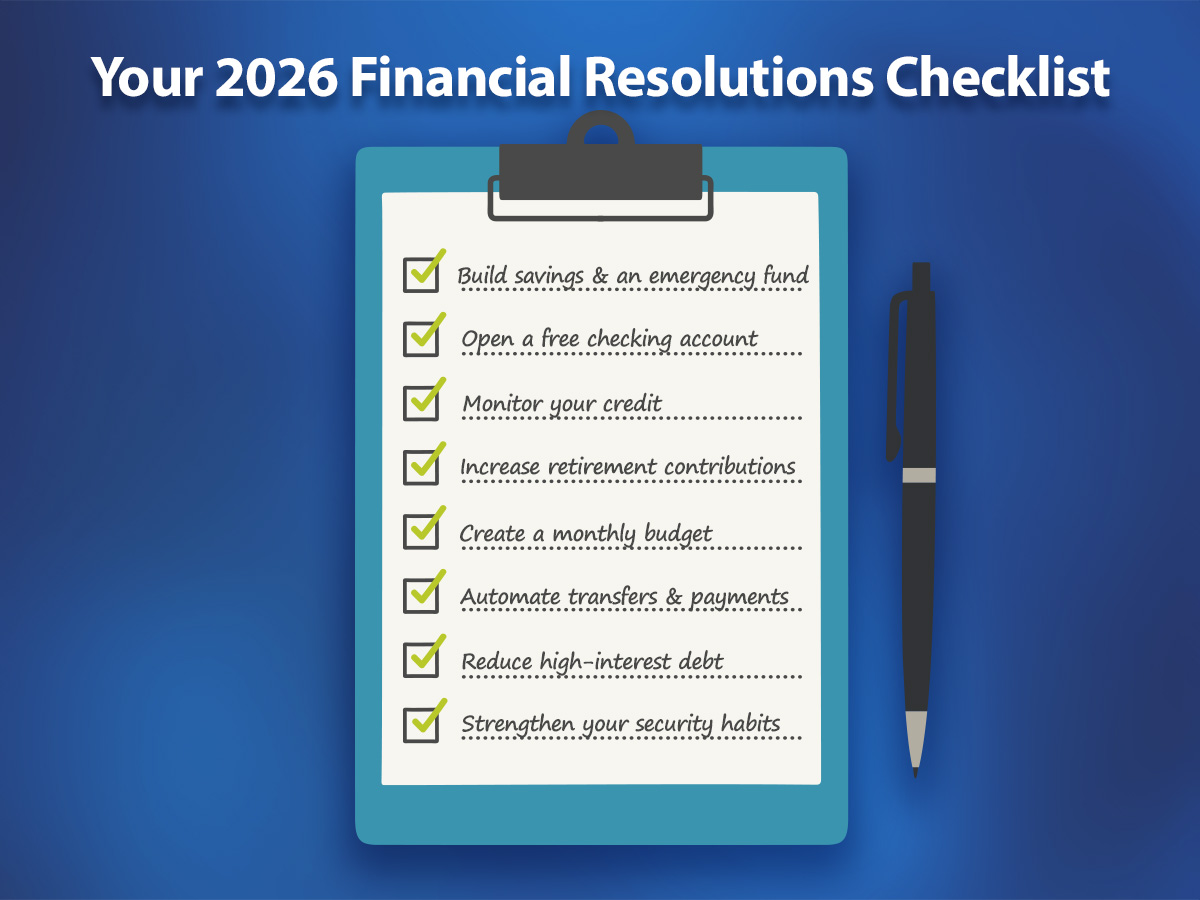 Fraud
FraudJune 25, 2025
How to Avoid URGENCY Scams
Combat fraudsters and avoid urgency scams.
Fraudsters try to inspire fear by creating a false sense of urgency. They insist on immediate action, whether they’re pretending to be from the IRS, a tech company, or your financial institution. Because many of their scams do not hold up to scrutiny, they do not want you to take time to think or fact-check their claims. We’ve outlined some tips to help you avoid urgency scams and the steps to protect yourself.
It’s easier to protect yourself when you know their tricks.
Common Scammer Tricks
- Tricking your Caller ID or Inbox into displaying a name you’ll trust. This is called “spoofing,” a high-tech way of masquerading as someone with authority. Their call, text, or email may appear to be from your local “Sheriff’s Office” or your financial institution’s “Fraud Department.”
Respond by confirming what you’re being told. Contact the source directly.
Don’t trust any phone number or link in an incoming message. Instead, use verified contact methods from the organization’s website or a recent mailing. Or, check online for a reliable source, such as your state government or a consumer advocacy group
- Encouraging secrecy. This is most effective when a scammer pretends to be a loved one in trouble and in need of money. They’ll beg you, “Please don’t tell anyone about this!”
How can they impersonate someone you know?
• The fraudster might use “spoofing” to send an email or text.
• More sophisticated scammers use ‘voice cloning’; they’ll take a person’s recorded voice (usually from social media videos) and have Artificial Intelligence (AI) manipulate the audio. The scammer can then send texts to the AI program – “I’m in jail” or “I wrecked my parents’ car” – and AI instantly reassembles the voice recordings to say it!
Respond by calling the person who supposedly contacted you.
Use their usual phone number, even if they claimed that their phone was stolen or confiscated. If there’s no answer, call back immediately to signal that it’s important. As backup, call whoever is most likely to know where this person is.
- Transferring you to a ‘higher-up.’ If you hesitate or protest, the scammer may try to escalate the pressure by forwarding your call to their ‘boss.’ This trick has two goals. First, it makes scammer #1 seem trustworthy; they act as if they want to help you, but they must follow orders. Second, it makes scammer #2 seem more intimidating.
Respond by remaining calm and skeptical.
The higher-up may be the same person using a different voice! Remember that an unexpected incoming call or message is not a reliable source, no matter what position they claim to have.
- Empty Threats. Fraudsters have a short list of the fake threats that create the most urgency. “Pay us immediately,” they’ll insist, “or we’ll…
…send you or a family member to jail.”
…turn off a utility.”
…revoke your driver’s/business license or Social Security card.”
…give someone else this high-paying job/investment opportunity.”
Respond by doing a quick online search; you’ll likely find that their claims don’t hold up.
For instance, tax agencies aren’t authorized to revoke licenses. Existing laws give you time to pay overdue balances, and most states have legal protections for utilities, especially during winter months.
For job or investment scams, it can be trickier; scammers may use the names of real people at real companies. Take the time you need to verify claims and identities, and remember: If an offer sounds too good to be true, it probably is.
More Tips to Protect Yourself from Urgency Scams
- Take a few deep breathes. Unexpected incoming messages are meant to catch you by surprise. Do not give these calls, texts, or emails the benefit of the doubt. Remind yourself that only scammers make unreasonable demands.
- Store verified numbers in your phone’s Contacts. It gives you quick access to financial institutions, utility companies, and any agencies you interact with. In the event of a real (or fraudulent) emergency, you’ll appreciate the time saved!
- Protect your personal data. Never share your Online/Mobile Banking User ID, password, account numbers, or security codes. Only an identity thief will reach out to you and request this information. If anyone claims to be from PFFCU, or any other financial institution, and asks for such information, do not respond. Hang up on the caller or delete the message.
- Notify the real organizations. When you reach out to verify a scammer’s claims, you’re not just getting information. You’re notifying the financial institution, business, or agencies of a fraud attempt using their name. Like many organizations, PFFCU tracks fraud trends so we can share information with our members. Together, we can fight fraud to protect ourselves and our neighbors.
Stay in the Know.
Visit our blog for financial tips, fraud information, plus the latest news from Police and Fire Federal Credit Union.

